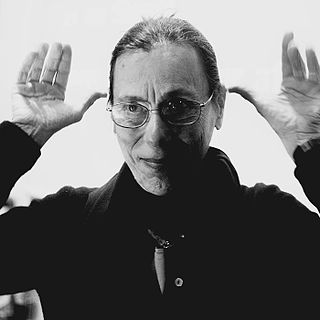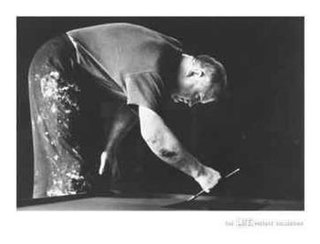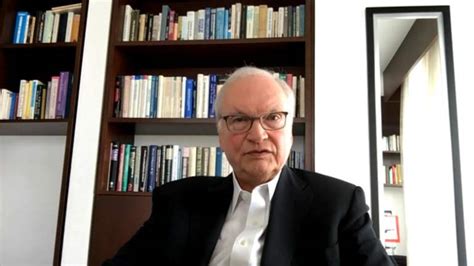A Quote by Terry Gross
Many artists use their own lives as a kind of case study to examine what it's like to be human.
Related Quotes
A problem with school is that you often become what you study. If you study, let say cooking, you become a chef. If you study law, you become an attorney, and a study of auto mechanics makes you mechanics. The mistake in becoming what you study is that, too many people forget to mind their own business. They spend their lives minding someone else's business and making that person rich
The study of letters is the study of the operation of human force, of human freedom and activity; the study of nature is the study of the operation of non-human forces, of human limitation and passivity. The contemplation of human force and activity tends naturally to heighten our own force and activity; the contemplation of human limits and passivity tends rather to check it. Therefore the men who have had the humanistic training have played, and yet play, so prominent a part in human affairs, in spite of their prodigious ignorance of the universe.
I should say that feminism gave me permission to deal with my own emotional life and put it up front in certain ways, or use film as a way to examine, at that time, my own heterosexual experience. Lives of Performers was the beginning of that kind of investigation. But also, the film was influenced by the aesthetics and structures of experimental film as that was taking place at the same time. Hollis Frampton was a big influence on me at that time.
... I was reminded of a remark of Willa Cather's, that you can't paint sunlight, you can only paint what it does with shadows on a wall. If you examine a life, as Socrates has been so tediously advising us to do for so many centuries, do you really examine a life, or do you examine the shadows it casts on other lives? Entity or relationships? Objective reality or the vanishing point of a multiple perspective exercise? Prism or the rainbows it refracts? And what if you're the wall? What if you never cast a shadow or rainbow of your own, but have only caught those cast by others?
It's true, there aren't many explicit references to Canada in my book. And not many explicit references to the U.S., either. I try to fill my poems with enough real, observed detail that the poems create a believable world - but I don't write poems for the sake of telling my own story. My life is not important or interesting enough to warrant that kind of documentary. Instead I try to use my experience as a way of understanding situations that are common to many people. I want readers to project their own lives onto my poems.
My advice would be to look at the things you do to make money as ways to inform your work in the end. If our work is to study the human condition, most humans that we are going to be playing aren't going to be artists, so go out and, as I did, learn what it's like to have a 9-to-5 job... Think of it as character study.
It must be stressed that there is nothing insulting about looking at people as animals. We are animals, after all. Homo sapiens is a species of primate, a biological phenomenon dominated by biological rules, like any other species. Human nature is no more than one particular kind of animal nature. Agreed, the human species is an extraordinary animal; but all other species are also extraordinary animals, each in their own way, and the scientific man-watcher can bring many fresh insights to the study of human affairs if he can retain this basic attitude of evolutionary humility.
It's the obvious thing to say but artists want to be able to tell all kinds of stories and tear down every kind of wall, to look at ourselves and examine who we are and just get deeper insights into what makes us human beings. Anything that could possibly prevent that in our near future horrifies me to no end.
People are not "things" to be manipulated, labeled, boxed, bought, and sold. Above all else, they are not "human resources." They are entire human beings, containing the whole of the evolving universe, limitless until we start limiting them. We must examine the concept of leading and following with new eyes. We must examine the concept of superior and subordinate with increasing skepticism. We must examine the concept of management and labor with new beliefs. And we must examine the nature of organizations that demand such distinctions with an entirely different consciousness.
I first read Freud's famous case study on hysteria based on his client Ida Bauer when I was in my twenties. It pissed me off so badly it haunted me for 25 years. But I had to wait to be a good enough writer to give Ida her voice back. And I had to go get my own first too. I not only know the case study inside and out, like most women, I lived a version of it. Maybe it's time for us to tell our versions.

































